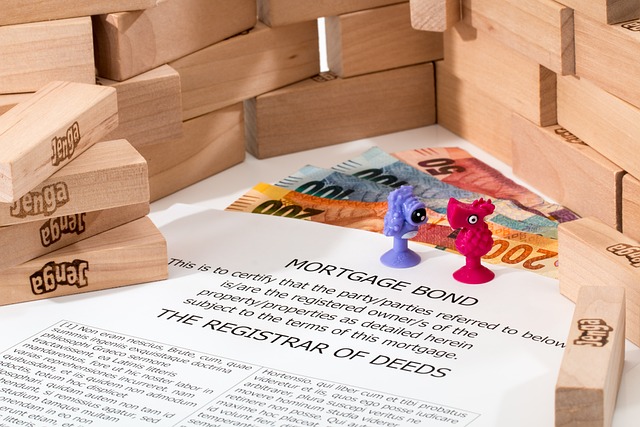UK Cookbooks and Culinary Guides Translation Services face a critical task in preserving cultural heritage through food. They must go beyond language translation, capturing the essence, history, and regional variations of traditional recipes to maintain their significance globally. These services safeguard culinary traditions, foster cross-cultural understanding, and inspire chefs worldwide. Translating UK cookbooks requires precision, cultural sensitivity, and knowledge of unique ingredients and techniques. By collaborating with native speakers and food experts, and leveraging technology like machine learning, these translation services preserve regional flavors, dialects, and idioms while introducing global audiences to the rich tapestry of British cuisine. This blend of traditional knowledge and contemporary appeal promotes culinary tourism and supports local economies.
In a world where global culinary experiences are readily accessible, preserving local traditions through translation is more vital than ever. UK cookbooks and culinary guides play a pivotal role in cultural exchange, connecting diverse communities with authentic tastes and practices. This article explores the art of translating these resources accurately, delving into challenges, techniques, and collaborations that ensure regional variations and local ingredients shine. Discover how modern technology and effective marketing strategies are revolutionizing UK cookbook and guide translation services, ensuring culinary traditions thrive globally.
- Understanding the Importance of Preserving Culinary Traditions
- The Role of UK Cookbooks and Culinary Guides in Cultural Exchange
- Challenges in Translating Culinary Content Accurately
- Techniques for Capturing Taste and Texture in Translations
- Incorporating Regional Variations and Local Ingredients
- Collaboration with Native Speakers and Food Experts
- Utilizing Modern Technology for Authenticity
- Marketing and Promoting Preserved Culinary Traditions
- Future Trends in UK Cookbook and Guide Translation Services
Understanding the Importance of Preserving Culinary Traditions

Preserving culinary traditions is a delicate task, especially when it comes to translating them accurately. In the UK, where diverse cultures coexist and cooking is more than just a meal but a cultural heritage, this becomes even more significant. When translating cookbooks or culinary guides, UK-based services must go beyond simple word choice. They play a pivotal role in keeping alive the essence of traditional recipes and culinary practices that have been passed down through generations.
These translations are not merely about converting text from one language to another; they involve capturing the spirit and soul of each dish. This includes understanding the history, cultural significance, and regional variations behind the dishes. By preserving these traditions, UK cookbooks and culinary guides translation services contribute to a global gastronomic heritage, ensuring that future generations can enjoy and learn from the rich culinary diversity that makes our world a more vibrant place.
The Role of UK Cookbooks and Culinary Guides in Cultural Exchange

The UK is renowned for its rich culinary heritage, offering a diverse range of traditional dishes that have evolved over centuries. This cultural richness makes UK cookbooks and culinary guides invaluable resources for both local and international audiences. Translation services play a pivotal role in ensuring these culinary treasures reach a broader, global audience. By accurately translating recipes, cooking techniques, and cultural insights from these guides, language professionals enable people worldwide to experience authentic UK cuisine.
These translation efforts not only preserve the integrity of the original content but also foster cross-cultural understanding. They allow readers to connect with the history, traditions, and regional variations that give British cuisine its unique appeal. Moreover, translating UK cookbooks and culinary guides can inspire chefs and home cooks alike, promoting cultural exchange through the universal language of food.
Challenges in Translating Culinary Content Accurately

Translating culinary content, especially for UK cookbooks and culinary guides, presents a unique set of challenges that go beyond mere word-for-word substitutions. The delicate balance between conveying precise ingredients, cooking techniques, and capturing the essence of a dish often proves elusive due to cultural differences in cuisine, terminology, and even taste preferences. For instance, translating a British recipe’s call for “double cream” might not have an exact equivalent in another language or culture, requiring translators to find a substitute that remains faithful to the original intention.
Furthermore, culinary traditions are deeply rooted in their respective regions, encapsulating history, social practices, and regional dialects. UK cookbooks often reflect diverse cultural influences, making it crucial for translators to grasp not only the language but also these underlying cultural contexts. Accurate translation services for cookbooks and guides must go beyond language proficiency; they demand a deep understanding of culinary arts and a sensitivity to cultural nuances to ensure that the essence and authenticity of each recipe are preserved.
Techniques for Capturing Taste and Texture in Translations

When translating UK cookbooks and culinary guides, capturing the essence of taste and texture is an art. Professional translators specializing in this field employ various techniques to ensure that the original culinary experience is not lost in translation. One approach involves using descriptive language that evokes sensory details—describing the crunch of crispy vegetables or the velvety smoothness of a creamy sauce. This method allows readers to imagine the dish, almost tasting and touching it.
Additionally, translating culinary terms accurately is paramount. UK cooking often relies on specific regional ingredients and techniques that may not have direct equivalents in other languages. Translators must research and select the most fitting words to convey these unique elements, ensuring that the end result tastes as authentic as possible. This meticulous process guarantees that food lovers worldwide can explore and appreciate British cuisine through accurate and engaging translations.
Incorporating Regional Variations and Local Ingredients

When translating cookbooks or culinary guides, especially for a specific region like the UK, it’s vital to capture the essence of local flavors and traditions. Regional variations in cooking styles and ingredients are what make each area’s cuisine unique. Translation services should not only focus on words but also understand and convey these subtle differences. For instance, UK cookbooks might include specific recipes using locally sourced produce such as Yorkshire puddings or Cornish pasties, which would need to be accurately represented for readers outside the region to truly appreciate British culinary heritage.
Incorporating local ingredients and cooking techniques ensures that the translated content resonates with readers from different backgrounds. It allows them to explore and understand the cultural richness of a place through its food. UK cookbooks and culinary guides can thus become valuable resources, introducing global audiences to the diverse and delicious tapestry of British cuisine while preserving these traditions for future generations.
Collaboration with Native Speakers and Food Experts

When translating UK cookbooks, culinary guides, or any content related to food, collaboration with native speakers and food experts is invaluable. These professionals ensure that the translated text accurately represents the original cultural nuances, ingredients, and cooking techniques. Native speakers bring their deep understanding of idiomatic expressions, regional dialects, and colloquialisms, ensuring the translation sounds natural in the target language. Food experts, on the other hand, provide insight into specific culinary terms, cooking methods, and traditional recipes, enhancing the authenticity and quality of the translated material.
This collaborative approach is particularly vital for preserving cultural heritage. By involving food experts, translation services can go beyond simple word-for-word translations, capturing the essence and soul of UK cuisine. The result is a comprehensive guide that not only introduces readers to new dishes but also educates them on the rich culinary history and traditions behind them, fostering a deeper appreciation for the culture.
Utilizing Modern Technology for Authenticity

In today’s digital age, technology offers unprecedented opportunities for UK cookbook and culinary guide translators to preserve authenticity. Online platforms allow direct access to diverse cultural recipes and culinary techniques, providing a rich resource for accurate translation. Advanced translation software, equipped with machine learning capabilities, can capture subtle nuances and regional variations in cooking styles, ensuring the translated content remains true to its original essence.
Moreover, leveraging social media and online communities focused on global cuisines enables translators to connect with experts and enthusiasts worldwide. This network facilitates cross-cultural understanding and ensures that culinary traditions are not only accurately represented but also keep pace with modern tastes and practices. UK translation services specializing in cookbooks and culinary guides can thus offer clients a unique blend of traditional knowledge and contemporary appeal, making cultural cuisine accessible and appealing to global audiences.
Marketing and Promoting Preserved Culinary Traditions

Marketing and promoting preserved culinary traditions is a key step in ensuring their longevity, especially when translating them into new languages through UK cookbooks and culinary guides translation services. Digital platforms offer vast opportunities for reaching a global audience, with social media showcasing recipes, cultural insights, and visual appeals that transcend language barriers. Collaborating with influencers and food bloggers from diverse backgrounds can help amplify the message, making traditional cuisines more accessible and desirable worldwide.
Culinary tourism is another powerful tool for promoting preserved culinary traditions. Highlighting regions where these traditions thrive, and sharing their unique stories through well-crafted UK cookbooks and culinary guides, attracts visitors interested in authentic cultural experiences. This not only supports local economies but also fosters a deeper appreciation for the traditions among those who engage with them directly.
Future Trends in UK Cookbook and Guide Translation Services

The future of UK cookbook and culinary guide translation services looks set to be shaped by several key trends. With the global food scene becoming increasingly diverse, there’s a growing demand for translations that not only capture the literal meaning but also convey the cultural nuances and unique culinary experiences. Professional translators are responding by embracing advanced language technologies while maintaining a human touch, ensuring accuracy and fluency in the target languages.
Technologies like machine translation (MT) and artificial intelligence (AI) are streamlining processes, making translations faster and more cost-effective. However, these tools are often used alongside human expertise to refine and polish texts, ensuring they maintain the essence of the original UK culinary traditions. This blend of technology and humanity guarantees that translated cookbooks and guides not only meet practical needs but also satisfy the taste for authentic, culturally rich content among international readers.
Preserving culinary traditions through accurate translations of UK cookbooks and culinary guides is a multifaceted endeavor. By understanding cultural nuances, employing innovative techniques, and collaborating with experts, translators can capture the essence of regional variations and local ingredients. Modern technology enhances authenticity while effective marketing promotes these preserved culinary traditions, ensuring their continuation and appreciation in diverse global communities. UK cookbook and culinary guide translation services play a vital role in fostering cultural exchange and enriching our global food landscape.
